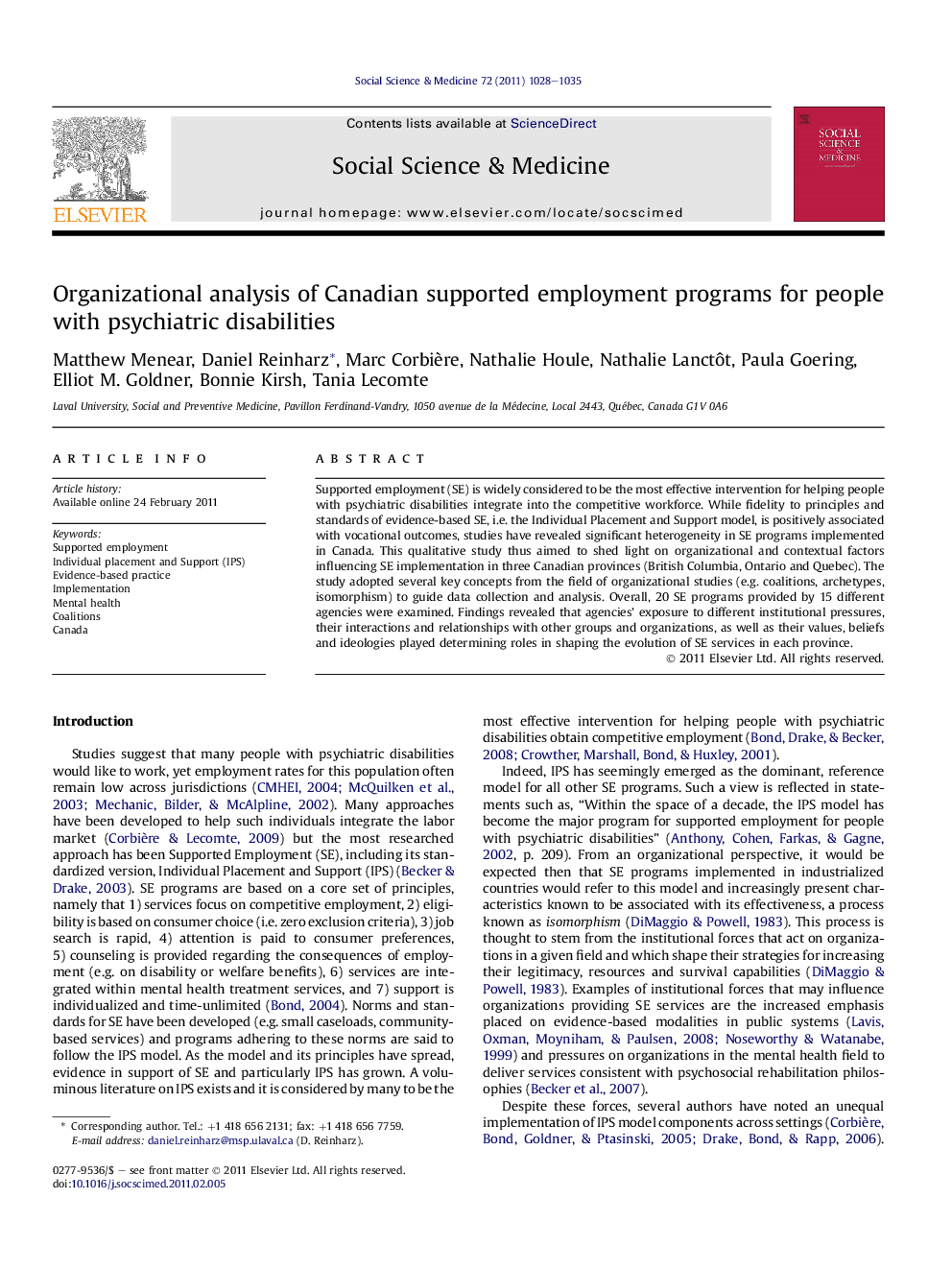| Article ID | Journal | Published Year | Pages | File Type |
|---|---|---|---|---|
| 952810 | Social Science & Medicine | 2011 | 8 Pages |
Supported employment (SE) is widely considered to be the most effective intervention for helping people with psychiatric disabilities integrate into the competitive workforce. While fidelity to principles and standards of evidence-based SE, i.e. the Individual Placement and Support model, is positively associated with vocational outcomes, studies have revealed significant heterogeneity in SE programs implemented in Canada. This qualitative study thus aimed to shed light on organizational and contextual factors influencing SE implementation in three Canadian provinces (British Columbia, Ontario and Quebec). The study adopted several key concepts from the field of organizational studies (e.g. coalitions, archetypes, isomorphism) to guide data collection and analysis. Overall, 20 SE programs provided by 15 different agencies were examined. Findings revealed that agencies’ exposure to different institutional pressures, their interactions and relationships with other groups and organizations, as well as their values, beliefs and ideologies played determining roles in shaping the evolution of SE services in each province.
► Canadian supported employment programs exist in various forms and are provided by many types of organizations operating in several sectors. ► Supported employment program implementation was influenced by prevailing values and beliefs, interactions between stakeholders and by various institutional pressures. ► Mimetic and normative institutional pressures were particularly instrumental to the emergence of individual placement and support (IPS) programs in Canada. ► A variety of supported employment modalities inconsistent with known principles and norms of supported employment continue to be seen as legitimate in the eyes of most stakeholders.
